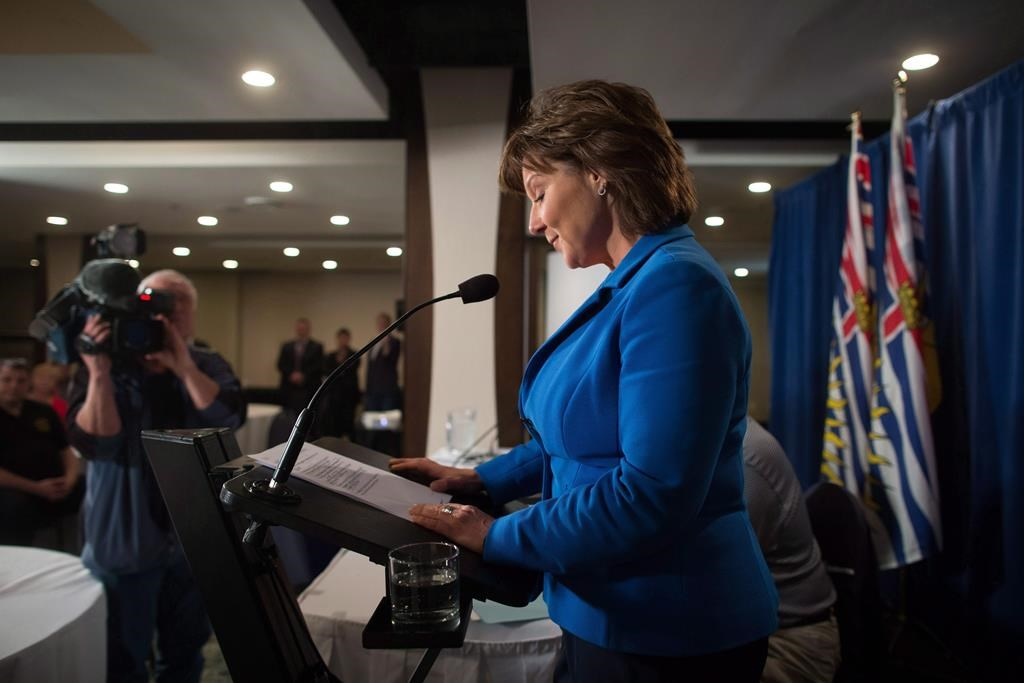Support strong Canadian climate journalism for 2025
All eyes are on Premier Christy Clark after Monday's announcement that British Columbia's New Democrats reached an agreement with the Green party to form a minority government, experts say.
NDP Leader John Horgan and Andrew Weaver of the Greens appeared outside the legislative chamber in Victoria to share the news. They said details of the agreement would be released Tuesday after the NDP caucus has had a chance to ratify the deal, which is expected to last four years.
"The ball is really in Christy Clark's court at this point," said Max Cameron, a political scientist at the University of British Columbia.
"The question will be, does she do the elegant thing, which would be to resign and let John Horgan and the NDP form the government ... or does she attempt to go it alone."
In a statement, Clark said her party has a responsibility to carefully consider its next steps and that she would have more to say Tuesday after consulting her caucus colleagues.
Weaver has been negotiating with both parties since his party held the balance of power in the legislature after the provincial election on May 9.
The Liberals won a plurality of seats with 43 compared to the NDP's 41 and three for the Greens, so parliamentary tradition gives Clark the first chance to form a government.
Clark may test her luck
Prof. Hamish Telford, who teaches political science at the University of the Fraser Valley, explained that the NDP-Green collaboration was far from a done deal.
"Just because they have an agreement today to govern doesn't mean they will actually form a government," he said.
Telford pointed out how in 2008 the federal Liberals failed to form a government after approaching the governor general with a coalition agreement signed by the NDP, Bloc Quebecois and Green party to overthrow the Conservatives led by then-prime minister Stephen Harper.
Telford said he expects Clark to test her luck in the legislature with a throne speech rather than admit defeat, given the NDP and Greens only have one more seat between them than the Liberals.
"I don't think ... the NDP-Green majority is sufficiently great to cause her to concede," Telford said.
After all, he said it would only take one New Demcocrat to miss the ferry to Vancouver Island for the vote in the legislature in Victoria and "the Liberals could survive a confidence vote on the throne speech."
Clark would likely be defeated, Telford added. He predicted she would then approach Lt.-Gov. Judith Guichon to ask for another election, at which point it would be up to Guichon to decide whether to send voters back to the polls or ask Horgan to form a government.
"I don't know what she would do in those circumstances," Telford said.
No room for error
A minority NDP government propped up by the Greens would have "the narrowest of majorities," said Kathryn Harrison, a political scientist at the University of British Columbia.
"There is no room for error. There is no room for backbenchers to bolt. There's no room for sickness," she said, adding that governments can lose a single vote any number of ways.
"People misbehave. They get thrown out of caucus. They get sick or resign. Rebellious backbenchers threaten to vote against legislation and break party discipline," Harrison said. "It would be a challenge to govern for very long."
Minority governments have only occurred three times in B.C. history, most recently in 1952.



Comments